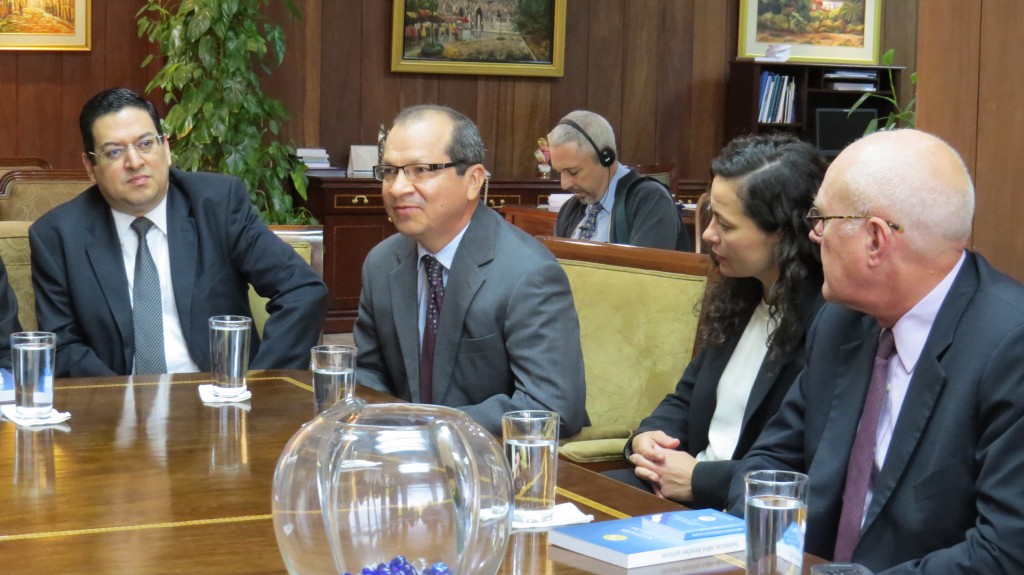
Victory! On July 14,2 2016, El Salvador’s Supreme Court overturned an amnesty law that had protected those responsible for severe human rights abuses during El Salvador’s civil war. Here is what CJA had said prior to the historic decision:
The Center for Justice and Accountability is building political consensus in El Salvador to overturn an amnesty law that protects those responsible for perpetrating some of the most heinous crimes during the civil war. CJA’s transitional justice strategy understands that justice requires navigating around political as well as legal obstacles
During the Salvadoran Civil War (1980 – 1992), over 75,000 civilians died at the hands of government forces. Some of the most well-known human rights atrocities happened during this period, including the 1989 Jesuits Massacre and the 1980 assassination of Archbishop Oscar Romero. In March 1993, the Salvadoran Legislative Assembly, dominated by El Salavdor’s right-wing ARENA party, adopted a blanket amnesty law that shielded all military and guerilla forces from prosecution for human rights abuses committed during the war.
One path forward is for political leaders to comply with a Salvadoran Supreme Court ruling in 2000 that the amnesty law does not apply to human rights crimes. There are those who argue that the killings of the Jesuit priests were “political crimes” because the Jesuits were perceived as siding with the rebel group FMLN (Frente Farabundo Martí para la Liberación Nacional) and supporting the overthrow of the government, and therefore those who participated in the massacre and its cover up should be exempt from prosecution. However, this was widely demonstrated to be untrue—the Jesuits were in fact meeting with both the government and the FMLN to try to broker peace. There is no doubt that their murders violated international human rights standards and that those responsible should be held to account.
If the Salvadoran government continues to maintain that the defendants are exempt from prosecution, then it is up to the Salvadoran Supreme Court to clarify that the murders were human rights crimes, to rescind the amnesty law in full, or narrow the law’s scope so that extradition or prosecutions can move forward. CJA has persistently advocated to overturn the amnesty law with Salvadoran officials, including Salvadoran Vice President Oscar Ortiz, justices from El Salvador’s Supreme Court, and other senior government officials, and outlined a path forward.